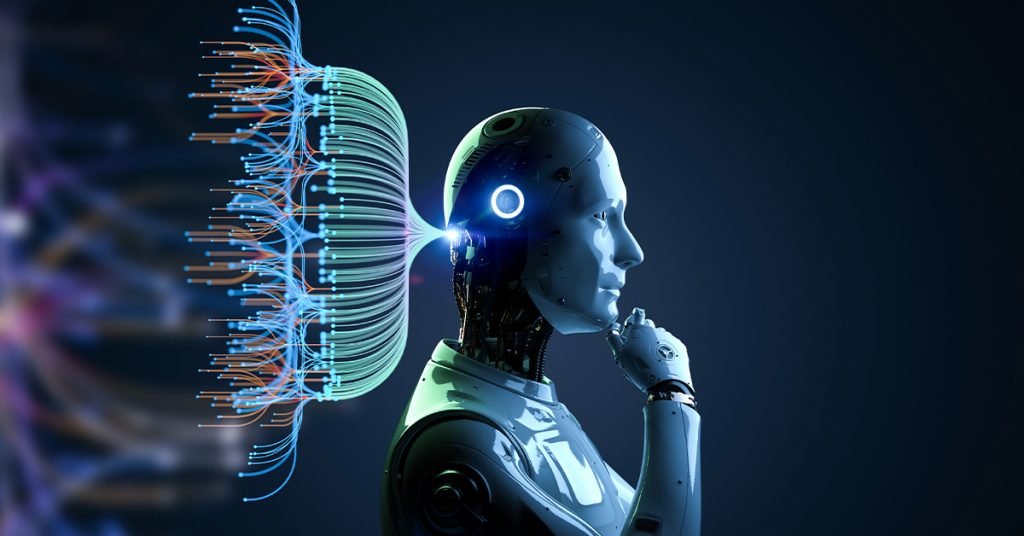
AI is basically a set of algorithms that can produce results without being told to. Artificial intelligence, according to some, is the process of imitating human traits and abilities in a machine while simultaneously using the machine’s computational capabilities to exceed human capacity. It makes it easier for humans to make complex decisions with big repercussions.
Nowadays, AI transformation in education assists the top engineering colleges with their applications and makes it easier for students and teachers in terms of learning in a flexible way. Let’s discuss the ways of artificial intelligence in education.
6 Ways of Artificial Intelligence in education:
- Personalised Learning
Learning programs, learning experiences, instructional approaches, and academic-support strategies designed to address the individual learning needs, interests, aspirations, or cultural backgrounds of individual students are referred to as personalized learning (or personalization).
Who can benefit from this learning? Students with high dropout rates and the ineffectiveness of a traditional “one-size-fits-all” approach to education are just a few of the issues facing mechanical engineering colleges or other engineering universities.
This has the potential to directly boost students’ motivation and lower their likelihood of dropping out of school. Additionally, professors may be able to teach more effectively if they have a better understanding of how each student learns.
- Adaptive Learning:
Rather than providing a one-size-fits-all learning experience, adaptive learning—also known as adaptive teaching—is the delivery of individualized learning experiences that take into account an individual’s specific requirements by providing just-in-time feedback, pathways, and resources.
Types of Adaptive learning:
Designed adaptability is one type of adaptive learning.Using an “If THIS, then THAT” strategy, this expert-model approach to adaptivity instructs the technology on how to respond to unique circumstances. It can be used for a variety of things, such as
- Providing the necessary re-education.
- Distributing advanced material to students who are achieving well.
Algorithmic adaptability: The algorithm can select “the right item at the right time” for students as they learn based on those answers. Like,
- What does the learner “know” about algorithmic adaptability?
- What should the student encounter next?
- Chatbots:
A chatbot is a computer software that simulates human communication by understanding client questions using artificial intelligence and natural language processing. Most of the private autonomous engineering colleges use chatbots for virtual teaching assistants and also designed to answer student queries directly.
However, there are a variety of chatbot types:
- Button-based chatbots: The most fundamental type of chatbot available today is the menu- or button-based chatbot. Only a few buttons are available to the user, which prevents them from freely entering text.
- Chatbots that are based on keyword recognition are an extension of chatbots that are based on menus or buttons. Users can interact with chatbots based on keyword recognition by providing free text input. The chatbot then examines the text for specific keywords and responds appropriately based on those keywords.
- Contextual machine-learning chatbots are significantly more advanced than the previous three bots. These kinds of chatbots use Machine Learning and artificial intelligence. The chatbot will store the information from every discussion and realize what the client likes to arrange.
- The hybrid chatbot model combines the simplicity of rules-based chatbots with the complexity of AI bots to provide the best of both worlds.
- Voice agents: A customer will find it much simpler to speak than to type. A voice-activated chatbot provides seamless experiences to the end user directly.
- Learning Content Analytics:
Learning Content Analytics is an AI engine that can be used for a variety of applications, like analyzing course material, mapping skills, and online class pattern analysis.
If these untapped resources can be tapped and refined, universities stand to gain a lot. They need to extract structured data from unstructured content in order to make it easier to use, from search to analytics, in order to accomplish this.
AI Content Analyzer helps with this. The arrangement of a number of AI services to discover hidden insights in vast amounts of data is referred to as AI Content Analyzer.
- Task Automation:
Task Automation enables educators to concentrate on learning outcomes rather than administrative and non-teaching tasks by automating administrative tasks through the use of artificial intelligence.
Teachers are also responsible for preparing lectures, managing teaching materials, drafting progress reports, etc., in addition to grading tests, evaluating homework, and reading essays. By efficiently examining administrative tasks, AI helps teachers reduce their workload.
- Online Exams:
Online Exams Students must pass exams at some point. Teacher’s exams are a logistical nightmare that requires a great deal of preparation. It can be very difficult to plan and conduct exams for a large number of students.
After the pandemic, the best placement colleges in Coimbatore and other universities makes online exams in practice. There are numerous advantages to securing online exams, which have recently gained popularity. An online exam comes with a set of checks to make sure there are no mistakes made by humans or malpractice.
To summarize:
Virtual education compelled a change in the industry. By providing access to appropriate courses, improving communication with tutors, and allowing students more time to concentrate on other aspects of their lives, AI helps students’ educational processes run more smoothly. The top five colleges in Coimbatore for engineering use AI to automate tasks including administrative labour, learning pattern analysis, paper grading, answering general questions, and more.
